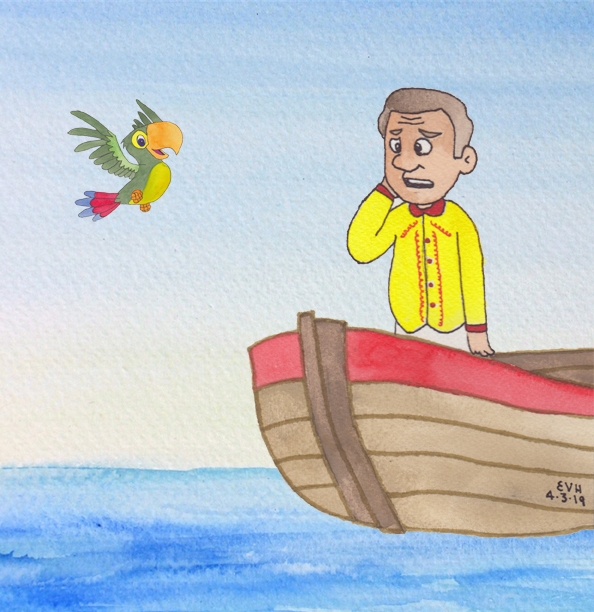
Jataka 127
Kalaṇḍuka Jātaka
The Story of Kalaṇḍuka
as told by Eric Van Horn
originally translated by Robert Chalmers, B.A., of Oriel College, Oxford University
originally edited by Professor Edward Byles Cowell, Cambridge University
This is a curious story. Nominally it is about boastfulness. But the elephant in the room is that in this lifetime the Bodhisatta is a slave owner. It is always hard to know the origin of these stories. Some of them were – no doubt – simply brought into the Buddhist tradition from Indian folk tales that had existed for a long time. This may be one of them. On the other hand, since these are nominally stories of the Buddha’s previous lives, he does not always behave in an exemplary manner. He is still a work in progress. This is an important lesson for all of us. We are all works in progress, and we do the best we can with the skills and situation in which we find ourselves.
“You boast.” This story was told by the Master once when he was at Jetavana. It is about a boastful monk. The introductory story and the story of the past in this case is like that of Kaṭāhaka related above (Jātaka 125).
Kalaṇḍuka was a slave of the Treasurer of Benares. He had run away and was living in luxury with the daughter of a border merchant. The Treasurer missed him and could not discover his whereabouts. So he sent a young pet parrot to search for the runaway. The parrot flew off in search of Kalaṇḍuka. He searched for him far and wide, until at last the bird came to the town where he lived. Kalaṇḍuka was enjoying himself on the river with his wife in a boat that was well-stocked with exquisite food and with flowers and perfumes.
Now the nobles of that land had a custom of taking milk with a pungent drug to drink at their water parties. This helped them to keep from feeling cold after their time on the water. But when Kalaṇḍuka tasted this milk, he choked and spit it out. In so doing he spit on the head of the merchant’s daughter. At that moment the parrot flew up. He saw all of this from the bough of a fig tree on the bank. “Come, come, slave Kalaṇḍuka,” the bird cried. “Remember who and what you are. Don’t spit on the head of this young gentlewoman. Know your place, fellow.” So saying, he uttered the following stanza:
You boast of your high status, your high degree,
With a lying tongue. Though I am but a bird, I know
The truth. You’ll soon be caught, you runaway.
Do not scorn the milk then, slave Kalaṇḍuka.
Recognizing the parrot, Kalaṇḍuka grew afraid of being exposed. He exclaimed, “Ah! good master, when did you arrive?”

Figure: The Wise Bird Knows
The parrot thought, “It is not friendliness, but a wish to wring my neck that prompts this kindness.” So he replied that he did not need Kalaṇḍuka’s help, and he flew back to Benares. He told the Lord Treasurer everything he had seen.
“The rascal!” cried the Treasurer. He ordered Kalaṇḍuka to be hauled back to Benares where he had to put up with a slave’s fate once more.
His lesson ended, the Master identified the birth by saying, “This monk was Kalaṇḍuka in the story, and I was the Treasurer of Benares.”
